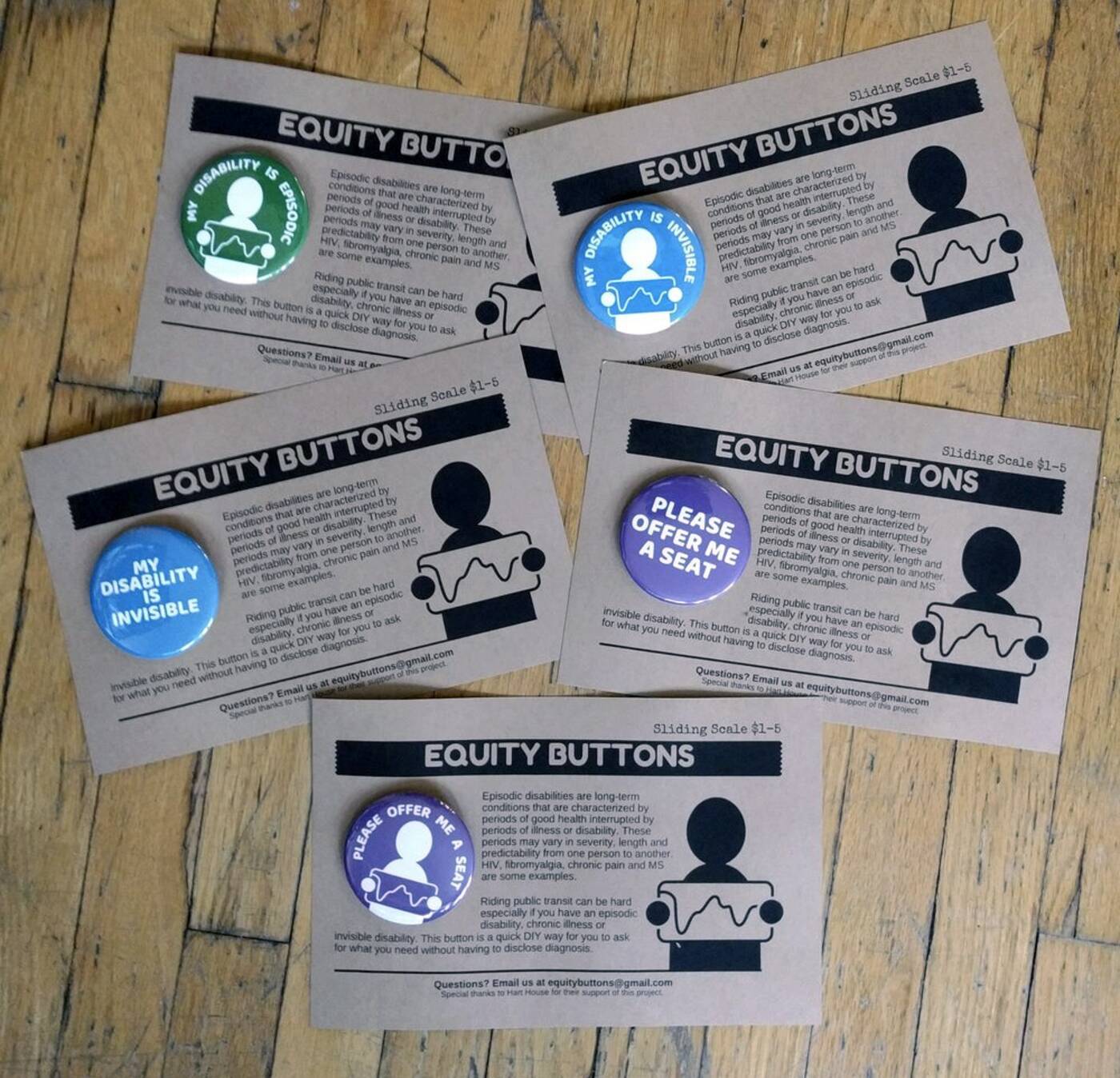
Someone is trying to improve manners on the TTC
About 3.8 million people in Canada are living with a disability according to the most-recent figures available from StatsCan – but you wouldn't necessarily know it.
Toronto artist, educator and self-described "cis queer crip community activist" Kate Welsh wants to change this for public transit riders who have invisible disabilities; people who may look well on the outside, but need to sit down on the subway for health and safety's sake.
In an effort to help people with such conditions as multiple sclerosis, HIV, fibromyalgia and cancer, she started Equity Buttons.
"Riding public transit can be hard especially if you have an episodic disability, chronic illness or invisible disability," reads the project's website. "This button is a quick DIY way for you to ask for what you need without having to disclose diagnosis."

Equity buttons are sold on a sliding scale, with prices that range between $1 and $5. Photo by equitybuttons.com.
Welsh recently told CBC Toronto that she was inspired to create the buttons after a friend of hers with cancer was denied a seat on the TTC.
The friend, who needed to sit down after cancer treatments, was once even told to get up out of a seat and move to accommodate someone else, Welsh says.
"I have asked for a seat and been given a long pause," says Welsh, who also has an invisible disability. "I have been questioned, like, 'Prove it.'"
Four different button designs can be purchased in any one of four different colours for between $1 and $5 online, or at select Toronto locations like Glad Day Bookshop and Six Degrees Health.
"Episodic disabilities are long-term conditions that are characterized by periods of good health interrupted by periods of illness or disability," reads a card sold with the buttons.
"These periods may vary in severity, length and predictability from one person to another."
Latest Videos
Latest Videos
Join the conversation Load comments







